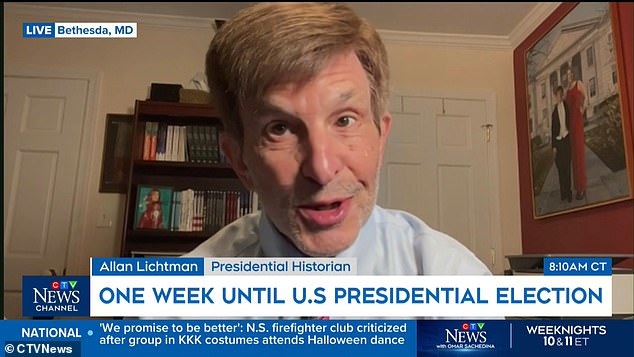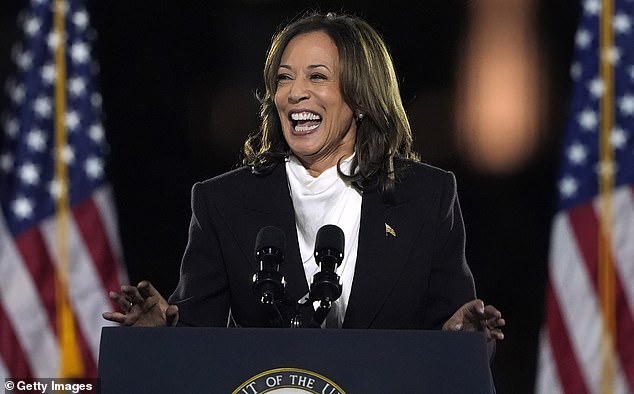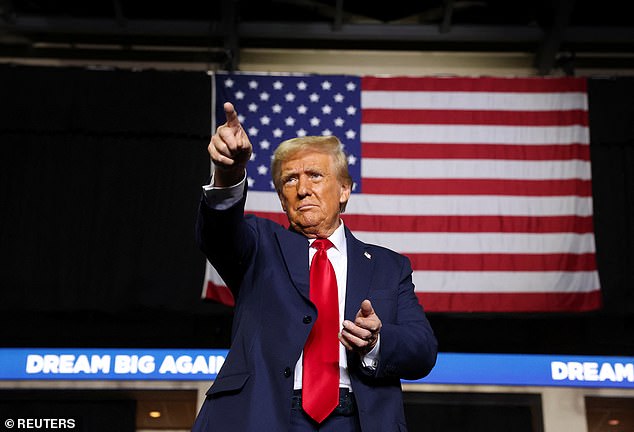Polling ‘Nostradamus’ tells voters to ignore polls and have faith in his prediction for 2024 winner
With less than a week to go until Election Day, the presidential historian dubbed the “Nostradamus” of polling experts Allan Lichtman has stayed true to his prediction that Democratic candidate Kamala Harris will become the next U.S. president.
The 77-year-old American university professor is known for developing his own election model, which has correctly predicted every presidential winner since 1984.
Last month he faced a wave of criticism when he revealed Harris had met what he said were the crucial targets for victory.
Speaking to CTV News, Lichtman said his prediction “does not change with regard to the ephemera of the campaign.”
He also explained that his prediction is “based on a fundamental understanding of how American presidential elections actually work, with votes going up or down on the strength and performance of the White House party.”
Presidential historian dubbed the ‘Nostradamus’ of polling experts Allan Lichtman remains true to his prediction that Democratic candidate Kamala Harris will become the next US president

Speaking to CTV News, Lichtman said his prediction “doesn’t change with regard to the ephemera of the campaign.”

The model is based on 120 years of presidential elections and even allowed Lichtman to call Trump’s unexpected 2016 victory a month before the election
He relies on an unorthodox system of ignoring the polls, based on what he calls “13 keys” to the White House, a model he developed in 1981 with his geophysicist friend Vladimir Keilis-Borok.
The model is based on 120 years of presidential elections and even allowed Lichtman to call Trump’s unexpected 2016 victory a month before the election.
He then used his tactics to correctly predict the outcome of the 2020 election.
As a result, he told CTV, “I’m certainly not changing my prediction based on polls.
“If I had done that, I would have been wrong in my prediction about Trump in 2016, when all the polls said otherwise.”
Explaining the mysterious 13 keys to the New York Times, Lichtman said, “They are 13 big, true-false questions that tap into the power and performance of the White House party.
The 13 keys include: medium-term gain, incumbency, primary contest, third party, short-term economy, long-term economy, policy change, social unrest, White House scandal, incumbent charisma, challenger charisma, foreign policy failure, and success in the field of foreign policy. .
The historian also told CTV about the “vulgar, crude, violent” hatred he received after making his prediction about Harris last month.

Republican presidential candidate and former US President Donald Trump attends a campaign event in Allentown, Pennsylvania, USA, October 29, 2024
“I’ve never had the kind of hate directed toward me that I’ve seen this time,” Lichtman said.
“This is the toxic politics that Donald Trump has introduced into our society,” Lichtman said. “It never happened before Trump came into office.”
It comes after Lichtman recently spoke on his YouTube channel about the “election anxiety” Americans experience ahead of Election Day.
“Many people believe that the future of the country is at stake here, and that America’s democracy could become a thing of the past. I don’t think that’s an unfounded fear.
“I’m so concerned about the future of our elections, you know, I think I’ve said this before: democracy is precious, but like all precious things it can be destroyed,” he said.
Last month, another election forecaster who rightly called the 2020 outcome also expected a landslide victory for Harris.
Data scientist Thomas Miller of Northwestern University said Harris will beat Trump in a landslide election, telling Fortune Magazine: “It’s gone from a drastic landslide toward Trump to a drastic landslide for Harris.”
Miller first gained attention after accurately predicting the 2020 presidential election by unconventionally using betting markets instead of traditional polls to predict the outcome.
He achieved this by developing a model, based on sixteen presidential elections, that converts betting prices into the popular vote and Electoral College projections.
This model shows a close correlation between the bets and the expected popular vote.
